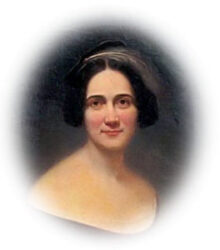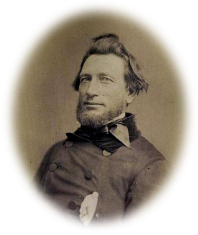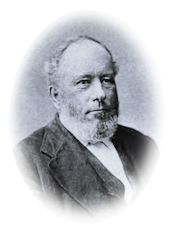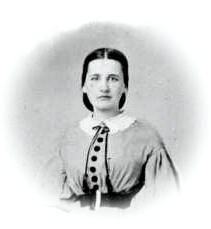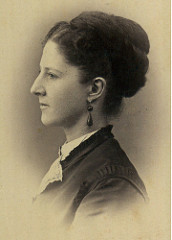March 17th.–Back to the Congaree House to await my husband, who has made a rapid visit to the Wateree region. As we drove up Mr. Chesnut said: “Did you see the stare of respectful admiration E. R. bestowed upon you, so curiously prolonged? I could hardly keep my countenance.” “Yes, my dear child, I feel the honor of it, though my individual self goes for nothing in it. I am the wife of the man who has the appointing power just now, with so many commissions to be filled. I am nearly forty, and they do my understanding the credit to suppose I can be made to believe they admire my mature charms. They think they fool me into thinking that they believe me charming. There is hardly any farce in the world more laughable.”
Last night a house was set on fire; last week two houses. “The red cock crows in the barn!” Our troubles thicken, indeed, when treachery comes from that dark quarter.
When the President first offered Johnston Pettigrew a brigadier-generalship, his answer was: “Not yet. Too many men are ahead of me who have earned their promotion in the field. I will come after them, not before. So far I have done nothing to merit reward,” etc. He would not take rank when he could get it. I fancy he may cool his heels now waiting for it. He was too high and mighty. There was another conscientious man–Burnet, of Kentucky. He gave up his regiment to his lieutenant-colonel when he found the lieutenant-colonel could command the regiment and Burnet could not maneuver it in the field. He went into the fight simply as an aide to Floyd. Modest merit just now is at a premium.
William Gilmore Simms is here; read us his last poetry; have forgotten already what it was about. It was not tiresome, however, and that is a great thing when people will persist in reading their own rhymes.
I did not hear what Mr. Preston was saying. “The last piece of Richmond news,” Mr. Chesnut said as he went away, and he looked so fagged out I asked no questions. I knew it was bad.
At daylight there was a loud knocking at my door. I hurried on a dressing-gown and flew to open the door. “Mrs. Chesnut, Mrs. M. says please don’t forget her son. Mr. Chesnut, she hears, has come back. Please get her son a commission. He must have an office.” I shut the door in the servant’s face. If I had the influence these foolish people attribute to me why should I not help my own? I have a brother, two brothers-in-law, and no end of kin, all gentlemen privates, and privates they would stay to the end of time before they said a word to me about commissions. After a long talk we were finally disgusted and the men went off to the bulletin-board. Whatever else it shows, good or bad, there is always woe for some house in the killed and wounded. We have need of stout hearts. I feel a sinking of mine as we drive near the board.
